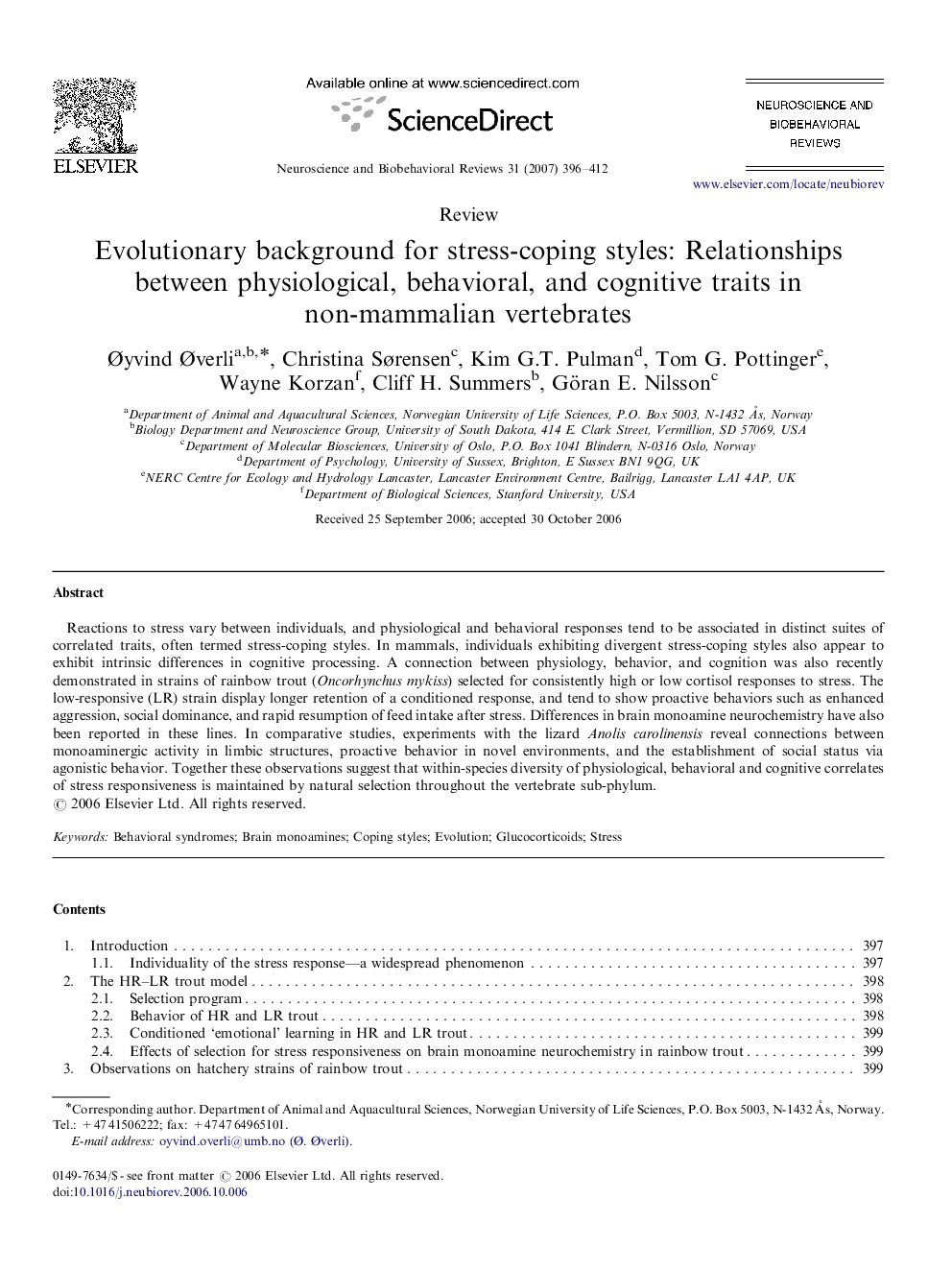| کد مقاله | کد نشریه | سال انتشار | مقاله انگلیسی | نسخه تمام متن |
|---|---|---|---|---|
| 938264 | 924621 | 2007 | 17 صفحه PDF | دانلود رایگان |

Reactions to stress vary between individuals, and physiological and behavioral responses tend to be associated in distinct suites of correlated traits, often termed stress-coping styles. In mammals, individuals exhibiting divergent stress-coping styles also appear to exhibit intrinsic differences in cognitive processing. A connection between physiology, behavior, and cognition was also recently demonstrated in strains of rainbow trout (Oncorhynchus mykiss) selected for consistently high or low cortisol responses to stress. The low-responsive (LR) strain display longer retention of a conditioned response, and tend to show proactive behaviors such as enhanced aggression, social dominance, and rapid resumption of feed intake after stress. Differences in brain monoamine neurochemistry have also been reported in these lines. In comparative studies, experiments with the lizard Anolis carolinensis reveal connections between monoaminergic activity in limbic structures, proactive behavior in novel environments, and the establishment of social status via agonistic behavior. Together these observations suggest that within-species diversity of physiological, behavioral and cognitive correlates of stress responsiveness is maintained by natural selection throughout the vertebrate sub-phylum.
Journal: Neuroscience & Biobehavioral Reviews - Volume 31, Issue 3, 2007, Pages 396–412